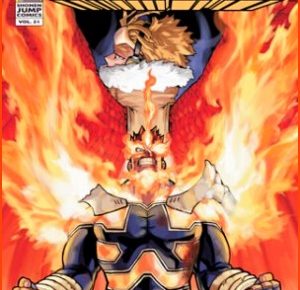In Episode 5 of “Is It Wrong to Try to Pick Up Girls in a Dungeon? V,” the longstanding tensions and desires that have been bubbling beneath the surface come to a dramatic head. Freya, one of the most powerful and enigmatic goddesses in Orario, chooses to shed her benevolent mask and engage in a more manipulative stratagem, which inevitably shakes the very foundations of the city. This episode is a pivotal moment, not just for the series but also for character development, particularly Freya’s obsession with the protagonist, Bell Cranel.
Table of Contents
The Unexpected Twist
In this riveting episode, viewers witness the manifestation of Freya’s desperation in its rawest form. She employs a mysterious non-divine method—an anomaly that defies the understanding of even those closest to her. Though details are scant, the outcome is clear: a new reality where everyone except Bell and Hestia believes he belongs to the Freya Familia. This ironic twist raises questions about destiny and choice, forcing characters and viewers alike to ponder the unpredictable nature of fate.

Freya’s Desperation and Bell’s Autonomy
Freya’s attempt to rewrite Bell’s history is not merely an act of selfishness but also an insight into her evolving awareness of past mistakes. Her character is drawn in shades of grey, mixing selfish desires with a need for redemption. Her struggle to possess Bell is akin to a child’s selfish whim—believing that altering circumstances will change reality. However, her actions underscore a deeper immaturity and fear of rejection, common traits in many goddess-based narratives.
Bell’s immunity to Freya’s machinations possibly hinges on his mental state or the goddess’s own intentions. Freya desires his autonomous affection and this manipulative episode is an extension of that complex desire for genuine connection.
Hermes’ Devious Calculations
Hermes, known as the trickster god, plays a crucial role in the unfolding events. His manipulation of circumstances indicates a layered understanding of Freya’s capabilities. He prepares for the inevitable fallout by advising Hestia and alerting Asfi and Ryu. His actions suggest a multifaceted strategy to counter Freya’s influence, illuminating a side of divine politics often skimped over in mythological interpretations.
Hermes’ awareness of the limits of Freya’s spell—constrained to the city—implies a well-calculated risk, highlighting his adeptness at playing against celestial rivals. It raises intriguing possibilities about the divine hierarchy and the political dance within the godly circles of Orario.
Hestia’s Divine Immunity
Hestia’s immunity and Hermes’ awareness of it introduce a vital narrative twist. It’s not just her divine status that shields her, but also her dominion over the hearth—a symbol of home and stability. The idea that her realm of influence offers a protection against Freya’s spells presents a layered mythological allegory, reflecting the interconnectedness of familial bonds and divine politics.
Freya’s infringement into Bell’s life not only breaks Orario’s legal and family sanctities but also breaches divine covenant, thus testing the boundaries of Hestia’s domain. This aspect provides a fresh perspective on the divine dynamics and familial systems in myth-inspired stories.
The Double Life of Freya/Syr
Freya’s dual identity with Syr adds further complexity to her character. The existence and non-existence of Syr represent Freya’s internal struggle—a duality that captures her vulnerability and desire to be loved authentically. This dual existence echoes through the storyline, offering hope or heralding doom for all within her sphere of influence. The question remains whether this dualism will be the catalyst for liberation or the instrument of downfall.
Final Thoughts
Episode 5 of “Is It Wrong to Try to Pick Up Girls in a Dungeon? V” is an intricate weave of myth, power, and emotion, encapsulated in Freya’s desperate plays. It shifts from mere romantic pursuit to an exploration of autonomy, divine power, and the ethical boundaries of love. While Freya’s actions may seem overarchingly self-serving, they lay bare the inherent flaws and frailties of a goddess not used to rejection. As alliances form and break, the story takes on a richer narrative, underscoring the enduring tension between divine manipulation and human freedom. This episode beautifully sets up the ensuing clashes, while continually reminding us of the unpredictable tapestry that forms the world of Orario.


